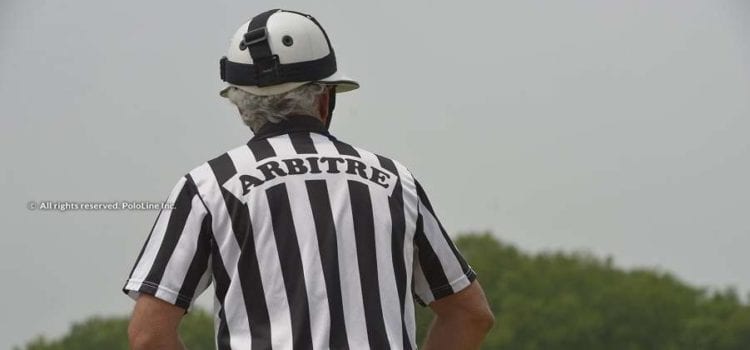A couple of weeks ago, the AAP sent the FIP and its members a letter stating that they should be notified before any Argentine umpires are hired to oversee tournaments played outside of Argentina.
The letter begins: “We are pleased to address you, as the leading entity of Polo in the Argentine Republic, in order to clarify what we consider should be the guidelines to be adopted in relation to the request for the services of Umpires and Referees (UURR), to perform in tournaments and competitions that are disputed in different countries.”
Firstly it must be stated that the AAP does not have any real type of authority over Argentine umpires, as there is not a contract which states that the individuals have an exclusive tie to the organisation. In fact, they don’t even have a contract. They simply provide a service and get paid for it every time they are hired to oversee a match. What the AAP is suggesting of the FIP would be akin to the idea that every Argentine player should be hired via the AAP. As players are free to choose where and when they play, so umpires should have that liberty. However, at times the AAP has designated umpire jobs, such as happened in Chile, Brazil, and most recently, India.
Of course, the AAP benefit from this, particularly in financial terms. The umpire fees are set and received by the AAP, and the umpire receives a smaller amount to the one he would have received had he been hired directly. The Association also benefits by showing that it has a certain influence over other polo entities, when in reality, this is not the case.
The straw that broke the camel’s back came in July, when the AAP discovered that the “26-Goal World Polo League Series,” to be played in Wellington in 2019, had already hired four Class ‘A’ Argentine umpires for the season. The AAP contacted the organising committee stating that the umpires should be hired via the Association, and that it would put forward a shortlist of umpires from which the final four could be chosen. The response from the States was a resounding no, emphasising that they felt free to hire whomever they pleased to oversee their tournaments. The same occurred in Spain.
Furthermore, the general consensus is that the hiring of umpires for private tournaments in Argentina should not depend on the AAP either. However, considering that the tournaments are played on Argentine territory and that players have to pay their handicap fee in order to play, it is not totally illogical that the AAP assign an umpire for those competitions. Even so, Pololine understands that each private tournament should be free to choose its umpires.
The letter from the AAP goes on to state: “This is the reason the AAP has always supported the forming of a group of Umpires and Referees (AARR), whose conformation has always been consulted with the Association of Referees of the Republic of Argentina.” Pololine has spoken to several umpires, and they have all stated that the AAP has in fact not consulted anything with the Association of Referees of the Republic of Argentina, and that, furthermore, they have not discussed the implementation of the new rules with the umpires themselves, and that many first read about the rule changes in the press.
The letter continues mentioning that the AAP “require that the respective national associations, directors of this sport, request directly and exclusively, all the applications of Umpires and Referees (UURR), in order to be able to process them and offer the advice and suggestions that can be considered necessary, taking into account the hierarchy of the tournament to be disputed.” Once again, the AAP does not have the authority to enforce this.
With the reception of this letter, many associations and international entities got in touch with Pololine after the close relationship we have with all of them thanks to all the work we made in these 20 years to express their concern about this statement from the AAP, and the consequences it may have. Many see the letter as an “attack” on the freedom they feel they should have when organising their polo seasons.
The letter was signed by Marcos Aldao, Director of Operations of the AAP, and Eduardo Novillo Astrada, President of the AAP.

